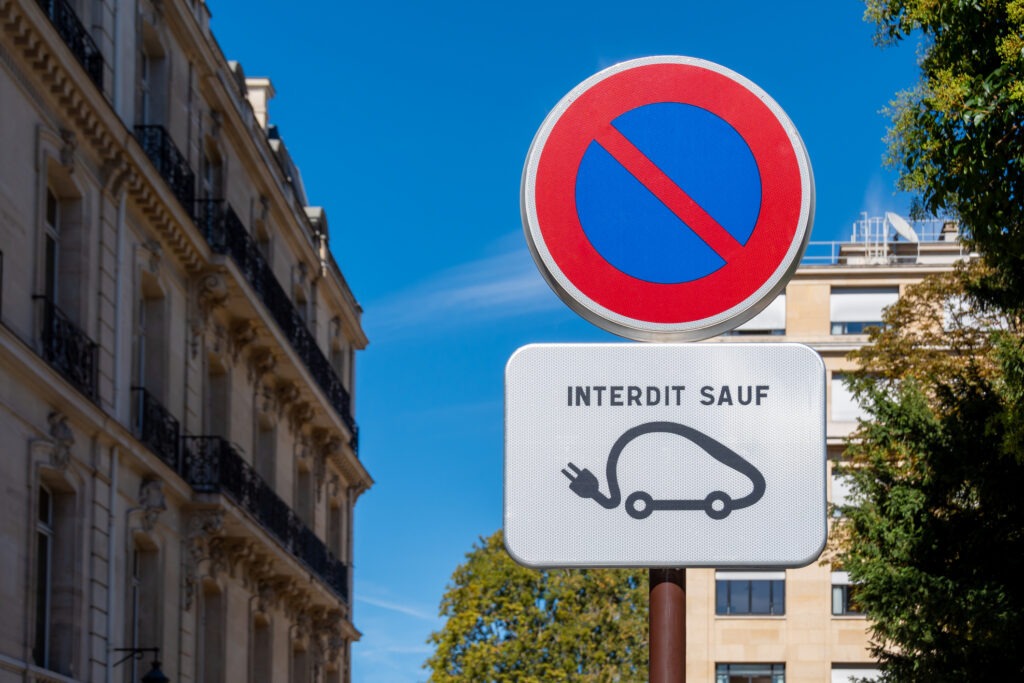EVs make up quarter of German new-car market in 2023
14 February 2024

The German electric vehicle (EV) market experienced a chaotic year in 2023, heavily disrupted by subsidy cuts. José Pontes, data director at EV-volumes.com, considers how incentives impacted the market’s performance.
December marked the end of a turbulent year for the German EV market, with 72,548 registrations in the final month of 2023. Consisting of plug-in hybrids (PHEVs) and battery-electric vehicles (BEVs), EVs accounted for 30% of all registrations.
A total of 17,894 PHEVs were delivered in December, giving the powertrain a 7.4% market share. However, the technology saw a decline throughout 2023 and ended by representing 6.2% of overall deliveries, down from 13.7% in 2022. This was the result of a subsidy cut at the start of January.
BEVs were also affected by subsidy changes in 2023, when business incentives stopped in September, triggering a registration peak in August. This was followed by an abrupt end to private BEV incentives in the middle of December, instead of at the end of the month as originally planned.
Despite some carmakers offering discounts to make up for the lost subsidies, the sudden cut still resulted in a December that was below expectations. BEVs generated a 23% market share in this period, with 54,654 registrations.
A quarter of the market
EVs made up 25% of all new-car deliveries in Germany last year, a drop of six percentage points from 2022. However, all-electric models held a more positive position. The powertrain accounted for 19% of the market, a slight increase from the previous year, and six percentage points above their 2021 result.
BEVs captured 75% of the German EV market in 2023, leaving PHEVs with 25%. This is a large shift from the 2022 split which saw BEVs take 56% and PHEVs 44%.
Plug-in hybrids can be expected to rebound a little at the beginning of this year, but the overall trend is one of progressive irrelevance. Meanwhile, BEVs are likely to suffer a small sales hangover, which will likely balance out with improved performance in the second half. The all-electric market could surpass the 20% share threshold by the end of the year.
Looking ahead to 2025, EVs should see strong growth in the German market, with its domestic premium brands rolling out mass-produced electric models. This includes the BMW Neue Klasse, Mercedes-Benz CLA EV, Audi A4 e-Tron and Volkswagen (VW) ID.2, as well as a possible compact offering from Tesla.
This should allow the German new-car market to reach a BEV share of 100% by the time the EU’s 2035 100% ZEV mandate comes into play. This does assume that future governments do not change the rules of the game, however.
BMW’s bright finish
Germany’s EV market saw a slightly distorted outlook towards the end of 2023. Carmakers provided varying levels of discounts on their electric models as incentives were removed.
However, BMW used the chaos to its advantage, as the i4 jumped to the top of the best-selling EV table in December, with a record 3,222 registrations. The saloon almost tripled the delivery figures of its rival, the Tesla Model 3 (1,131 units) which failed to feature in the top 20 ranking.
The Skoda Enyaq took second with 3,185 models taking to the roads, just 37 units off the top spot. It once again placed higher than its VW Group counterpart, the VW ID.4. Rounding out the top three, the Fiat 500e was the third model to surpass 3,000 registrations in December.
Another record performance by BMW came from its iX1, reaching 2,730 deliveries to place it in fourth. Its sibling, the iX, also posted a year-best 1,219 registrations, putting it 17th. The iX3 SUV managed 704 units, sitting outside the top 20.
In contrast to its previous results, the Tesla Model Y had a slower December, holding fifth place with 2,721 deliveries. The US manufacturer noticed this struggle and began dropping prices on the Model Y in 2024. However, the newly refreshed Model 3 remains at its original price point, even though it also had a disappointing performance in December.
The Cupra Born claimed sixth (2,524 units), beating its platform sibling the VW ID.3 (1,573 units), which sat in 12th. Meanwhile, the Cupra Formentor finished in ninth thanks to a year-best 1,934 registrations.
Audi had a close conclusion to the year, as its Q8 e-Tron (1,289 units) held 15th. Meanwhile, the Q4 e-Tron (1,365 units), its best-selling EV model in the region, ended the month just 76 registrations ahead.
Elsewhere, Opel had a strong month. The Corsa EV sat inside the top 10 with 2,287 deliveries, while the Mokka EV took 13th (1,423 units). Stellantis also held an additional spot in the table, as the Jeep Avenger EV (1,203 units) made it to 18th.
Outside the top 20, the Renault Zoe scored a year-best 572 deliveries, alongside the Twingo EV (593 units), both beating the Megane EV (327 units).
BYD’s Atto 3 achieved 555 registrations, while the new-generation Hyundai Kona (942 units) ramped up deliveries. The Mercedes-Benz EQE recorded 670 registrations, and the VW e-Up managed 565 units.
Tesla’s triumph
Looking at the full-year registrations for 2023, the Tesla Model Y claimed first place, taking its second title in succession and securing the midsize category win. The model ended the year almost 20,000 units ahead of the second-placed VW ID.4, which achieved the highest position for any MEB platform-based model. The ID.4 also saw category success, becoming the best-selling compact car in 2023.
The Skoda Enyaq took third, the carmaker's first podium place in Germany, meaning that the MEB platform appeared twice in the top three. Additionally, this meant the three most popular EVs in the country were crossovers. The Enyaq overtook the VW ID.3 in December, alongside the Fiat 500e in fourth. The Italian model was the best-selling city car of 2023, despite a 21% dip in deliveries from 2022.
Opel also had a strong finish, as Corsa EV jumped to 11th, less than 100 units behind the B-segment winner, the Mini Cooper EV. Its stablemate, the Opel Mokka EV, entered the table in 20th.
The other newcomer in the chart was the BMW i4, slotting into 14th. The iX1 recorded a positive result as well, climbing two positions into ninth.
Just above the iX1 in eighth, the Tesla Model 3 ended the year 52% down on its 2022 registration figures, finishing outside of the top three for the first time since 2018.
The title of best PHEV went to the Mercedes-Benz GLC, which moved up from 19th to 17th in December. Outside of the table, the Audi Q8 e-Tron was the best-selling full-size model, reaching just under 10,000 deliveries.
VW victorious
After relinquishing its lead in November, the VW brand was able to make a last-minute change at the top, thanks to an improved performance in December. It secured an 11.2% market share, enough to pass Mercedes-Benz, which fell from 11.4% to 11.1%. This meant the German brands stayed in the same position that they have occupied for the last four years in a row.
Tesla dropped four percentage points off its market share (9.1%) but held onto third, retaining its top three position from 2022. The US manufacturer narrowly edged out BMW (8.9%) which had a strong finish top 2023.
Audi claimed fifth (6.6%) but could challenge for a place in the top three at the end of 2024, as it introduces new models. The German carmaker was comfortably ahead of Opel (4.9%), as it passed Hyundai (4.8%) in December.
With brands grouped together under their parent companies, VW Group dominated with 27.8% of total registrations. This was over twice the share of Mercedes-Benz in second (13.4%). Stellantis came in third increasing its share to 12.5%.
The BMW Group posted growth in December (10.9%), finishing in fourth for the second year in succession. Tesla took fifth (9.1%), unable to bounce back with its quarterly delivery schedule, as Hyundai Motor Company claimed sixth with an 8% share.



